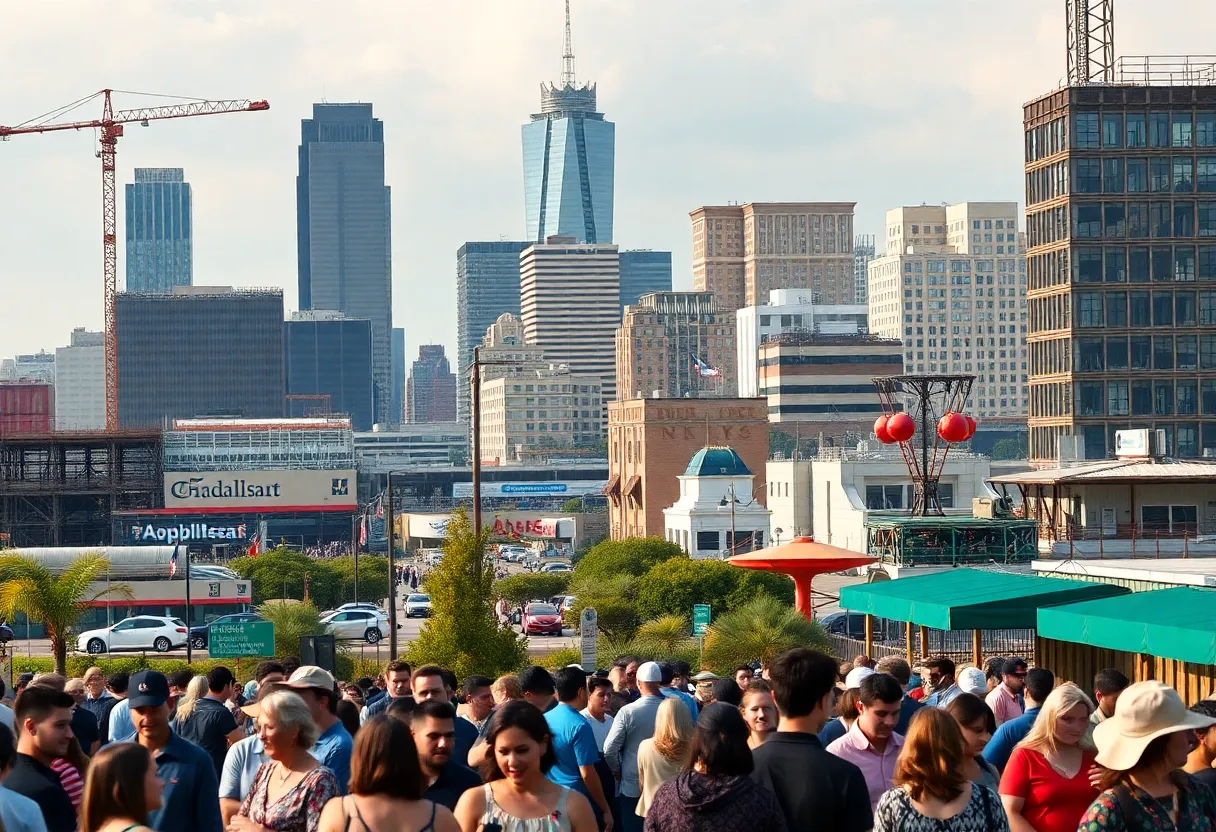

Dallas Economic Landscape
As President Trump’s immigration policies unfold, Dallas faces potential economic downturns due to a crackdown on undocumented workers crucial to the local economy. With 70% of construction workers in Texas from foreign backgrounds, the impact on construction, agriculture, and hospitality sectors raises significant concerns. Moreover, the tax contributions of undocumented immigrants play a vital role in supporting local services. Communities are coming together to address these challenges and emphasize the contributions of immigrants to the economy.
In Dallas, Texas, the atmosphere is tense as **_President Trump’s immigration crackdown_** continues to unfold. Experts are stepping forward with major concerns about the knock-on effects this may have on North Texas’s economy. With a significant number of undocumented workers contributing to various sectors, the potential for an economic downturn looms large.
The reality of the situation started to hit home when U.S. Immigration and Customs Enforcement (ICE) raids began to roll out across the nation, coinciding with Trump’s first week in office. Texas, holding one of the highest concentrations of **_unauthorized immigrants_** in the country, has seen arrests in major cities such as Dallas, Fort Worth, Arlington, Irving, and Garland.
The construction sector, which is integral to the economic fabric of the area, stands on shaky ground. A staggering **_70% of construction workers_** in Texas hail from foreign backgrounds, with about **_50% being undocumented_**. The Texas construction industry, valued at around **_$106 billion_**, could face chaos if these workers are removed from the labor pool. Cities within the bustling Dallas-Fort Worth Metroplex especially need a reliable workforce as their populations continue to surge.
But the challenges don’t stop there. The construction industry is already grappling with a significant workforce shortage. An industry report from American Builders and Contractors indicates that the nation will need **_439,000 new workers_** by 2025 and as many as **_499,000_** by 2026 just to keep pace with the growing demand. If steps aren’t taken to increase the workforce, rising labor costs could soon spell doom for feasible construction projects. Many contractors are finding it particularly tough to fill positions for certain high-demand projects, like data centers in the DFW area.
Moreover, the restaurant and hospitality sectors also depend on a significant number of undocumented workers. Should these individuals be removed from the labor force, operational challenges and limited service may become reality for many establishments.
Interestingly, undocumented immigrants contribute substantially to local economies, paying nearly **_$4.9 billion in state and local taxes_** in 2022. With increasing deportations, communities might face declines in tax revenues, which could impact local government services.
Beyond economic metrics, the societal implications are significant too. Recent executive orders propose changes to **_birthright citizenship_**, stirring anxiety within immigrant communities. Children born to parents unlawfully present or on temporary statuses might not qualify for citizenship, casting a long shadow over many families.
For the more than **_480,000 Indian immigrants_** residing in North Texas, concerns mount around potential changes that could affect their children’s citizenship rights. Activists and educators express worry that immigration enforcement in schools could disrupt the educational environment for undocumented children, leaving families in a state of uncertainty.
Throughout North Texas, protests have proliferated as communities rally to raise awareness about the effects of deportation policies on families. These gatherings emphasize the valuable contributions that immigrants make to Texas’s economy, showcasing solidarity and community spirit in the face of challenges.
As Dallas navigates these uncertain waters, there is hope that community members and local businesses can band together to address these ongoing issues. With the economic stakes high and many families affected, now is the time for collective resilience and forward-thinking solutions.
News Summary Brownsville, Texas, is abuzz after Amazon revealed plans to build a massive distribution…
News Summary Texas Children's Hospital and MD Anderson Cancer Center have partnered to launch a…
News Summary Plano is set to enhance its local economy and healthcare sector with the…
News Summary Governor Greg Abbott has signed Senate Bill 29 into law in Texas, introducing…
News Summary Texas is poised for a business boom as Governor Greg Abbott signs new…
News Summary The Texas Senate has approved a bill aimed at reducing property taxes for…